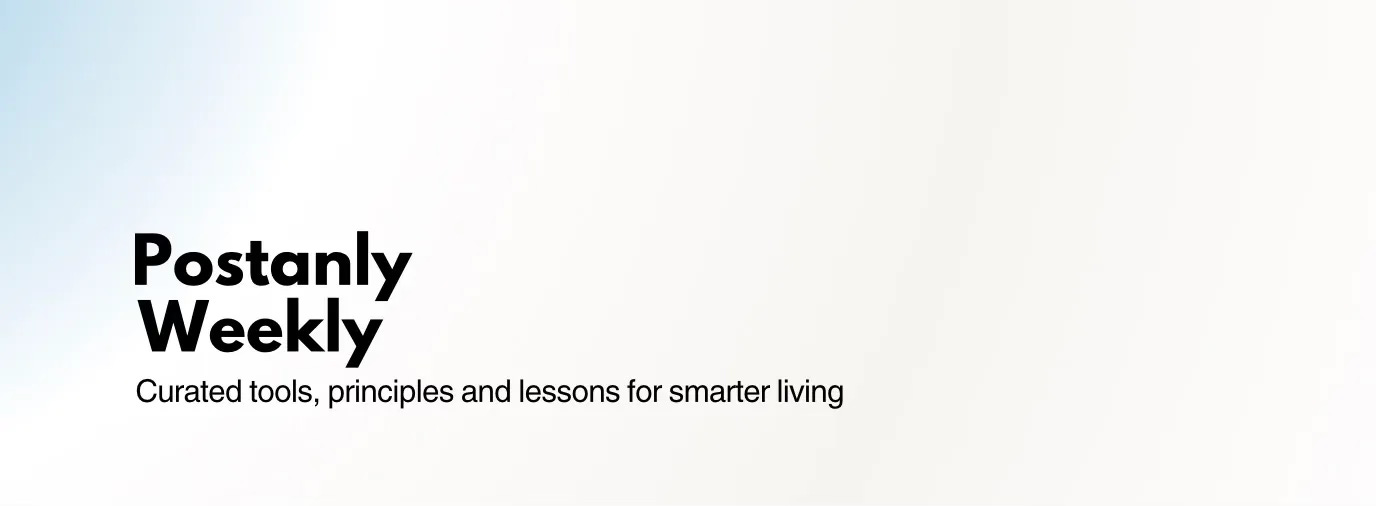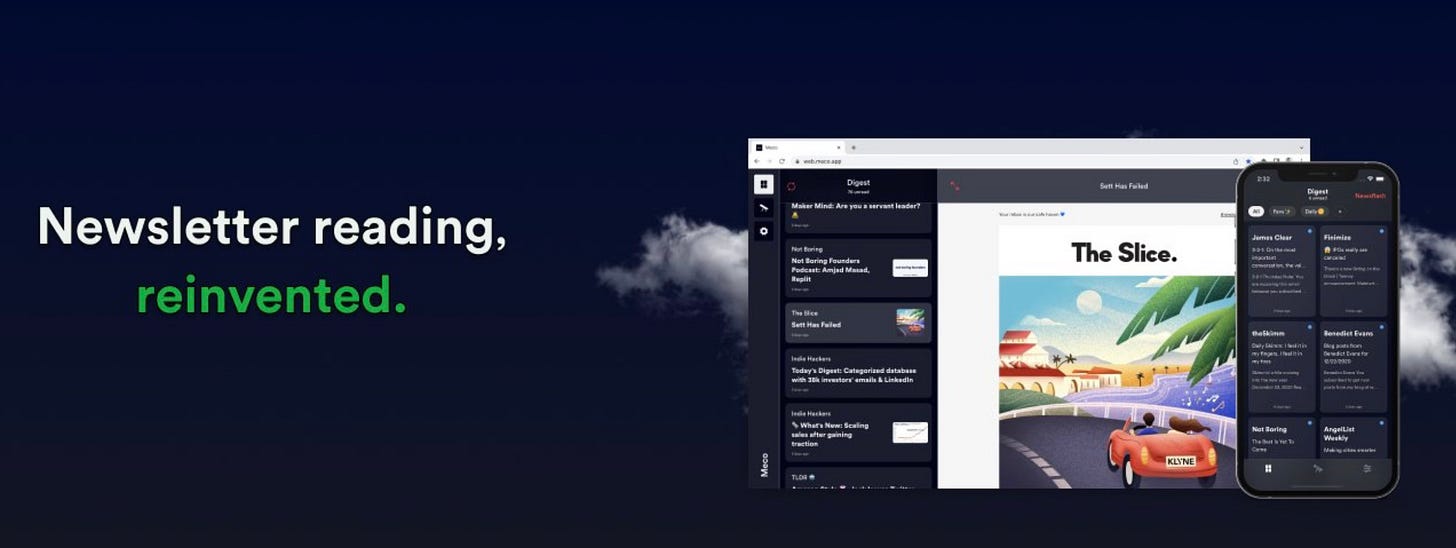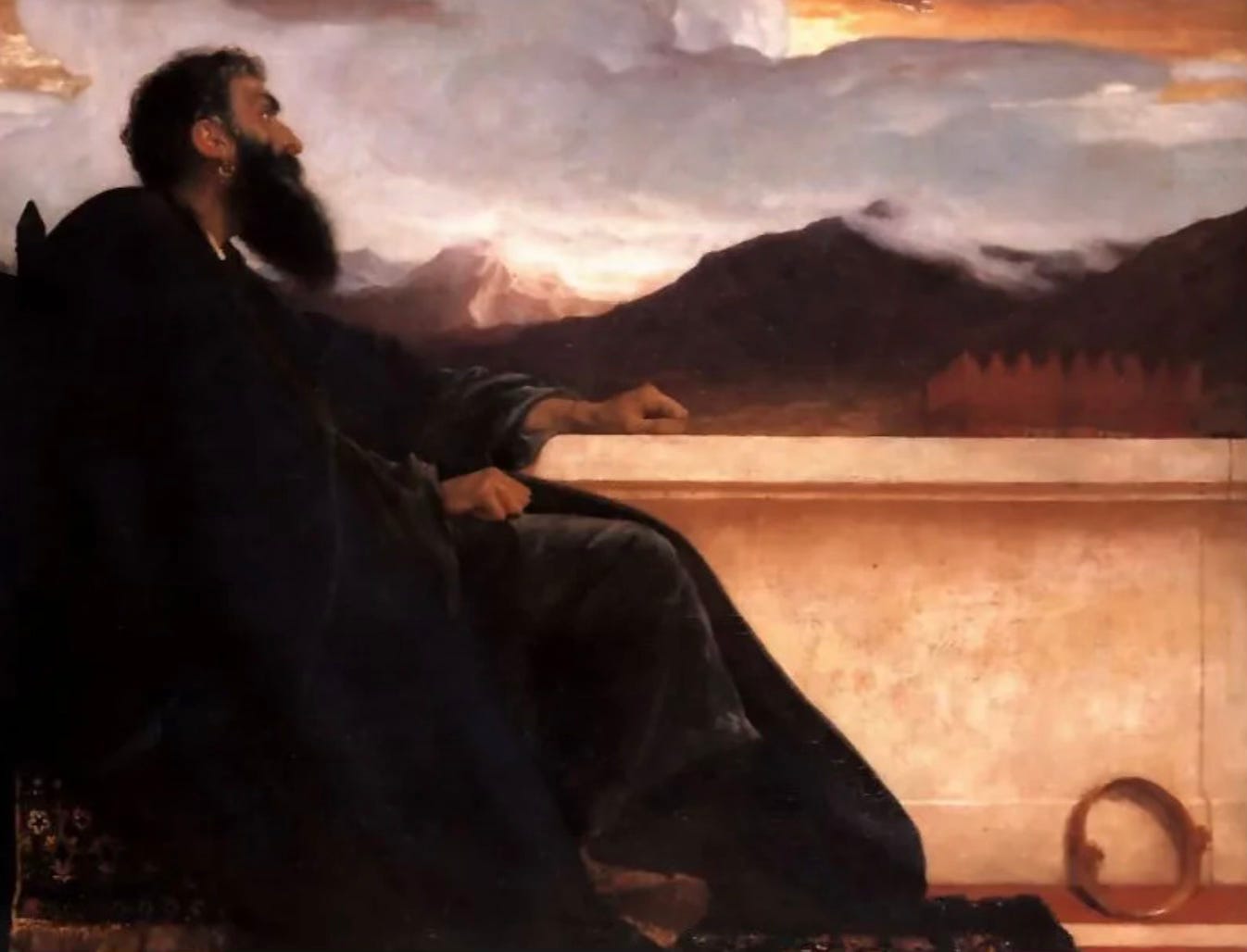Hello everyone,
Postanly Weekly is a reader-supported smarter living newsletter. To support my work, you can upgrade to a paid subscription for $7 per month or $40 for an entire year. With a modest yearly contribution you’re not only helping keep Postanly Weekly going, you also get free access to Thinking Toolbox (mental models for life) and Mental Wealth Toolbox (practical concepts for smarter decisions).
In partnership with Meco
Meco is the perfect app if you read lots of newsletters.
Declutter your inbox in seconds by using a newsletter aggregator built for reading. Your inbox wasn’t built for reading. Meco helps you move your newsletters to a space built for reading and declutter your reading experience in seconds. Read all your awesome newsletters and Substacks on the app designed for reading.
The Wisdom of Transcending The Self
“To study ourselves is to forget ourselves,” the philosopher Dogen said. Many great minds have explored the philosophy of forgetting yourself throughout history. From philosophers to spiritual leaders, the consensus is that to truly understand ourselves and become wiser versions of ourselves, we must first let go of our egos and preconceived notions.
Forgetting yourself is an act of releasing attachment, control, or identification with a specific aspect of yourself or life. It’s a concept of selflessness or egolessness, where you relinquish your sense of self-importance to gain deeper insight and understanding of the world around you.
“More the knowledge lesser the ego, lesser the knowledge more the ego,” Albert Einstein said.
To forget yourself in this context means to transcend the limitations of the ego, which tends to focus on self-centred desires, fears, and biases, and to open ourselves to a broader perspective that encompasses the interconnectedness of all things. By letting go of our ego, we can become more receptive to the present moment and develop a more intuitive, compassionate, and holistic way of perceiving reality.
In essence, forgetting yourself to become wise is not about abandoning your sense of self or individuality but rather transcending the limitations of the ego to tap into a more profound truth around you. It’s a state of mind that allows us to see things as they are, without the filters of personal biases and judgments, and gain insights that can help us navigate the challenges of life with greater wisdom and compassion.
The process of “forgetting yourself” is a way of connecting with a more expansive sense of consciousness that lies beyond the limitations of the ego. It’s how you gain self-understanding and greater clarity and learn from others. For example, in spiritual or personal growth contexts, forgetting yourself means releasing attachment to ego-based desires, fears, or beliefs, hindering your progress towards self-awareness or inner peace.
Transcending the limitations of the ego
“The ego-self constantly pushes reality away. It constructs a future out of empty expectations and a past out of regretful memories.” — Alan Watts
An open mind is ready and willing to unlearn doubt, and question almost everything. It’s open to embracing ignorance as the starting point to wisdom. To learn from almost everyone and everything around you, forget your privileges and accomplishments. By letting go of the ego, you can gain a deeper understanding of the nature of reality and learn more about the world around you.
It’s a humbling experience but it’s also the path to greater wisdom.
A closed mind cannot improve. A curious or beginner’s mind is ready to explore. It stays in wonder almost all the time. It’s a better approach to truly open ourselves to new perspectives, experiences, and connections we may have otherwise missed. “If your mind is empty, it is always ready for anything; it is open to everything. In the beginner’s mind there are many possibilities; in the expert’s mind there are few,” Shunryu Suzuki said in his book, Zen Mind, Beginner’s Mind: Informal Talks on Zen Meditation and Practice.
There are infinite paths to wisdom.
When we are attached to our ego, we are more likely to be defensive, resistant to change, and unwilling to listen to wisdom from others. It’s self-limiting. A lot of focus on ourselves and our own experiences means we miss valuable insights and perspectives from those around us. When you forget yourself, you learn from many experiences: read books and articles, watch educational videos and immerse yourself in multiple philosophical perspectives without getting attached.
It’s a meaningful experience that exposes us to new ideas and ways of thinking, expanding our understanding of the world. When we are open to learning from people smarter than us, we can benefit from their experience, knowledge, and wisdom. It’s a necessary process to help us make better decisions, solve problems more effectively, and live more fulfilling lives.
Empty yourself into experiences
“Awareness and ego cannot coexist,” Eckhart Tolle said.
To forget yourself is to see the many possibilities of life. The path to wisdom lies in letting go of your ego and attachments. When you are deeply attached to your beliefs, assumptions and perceptions about life, you can easily be blinded to the true nature of reality. But when you let go of yourself and open yourself up to the world around you, you can begin to see the world with clarity and compassion.
One way to practice letting go is to spend time in nature. When you are in nature, you can feel the interconnectedness of all things and begin to see the world from a broader perspective. You become more contemplative. You ponder your very existence, how far you’ve come and how much you still need to learn.
As you let go of yourself, you will begin to experience a sense of peace and tranquillity. Taking time to reflect on your experiences, beliefs, and values can help clarify your goals and priorities and identify areas for personal growth and development.
In summary, the path towards wisdom is a personal and ongoing journey that starts with forgetting your ego. It also involves continuous learning, growth, and self-reflection. It requires an openness to new experiences and perspectives and a willingness to let go of limiting beliefs and biases. Be wise enough to forget yourself. Empty yourself discover your self.
Let go of yourself into wisdom.
Food for thought
Life lessons from people who have figured out how to live a meaningful life.
“The purpose of life is to live it, to taste experience to the utmost, to reach out eagerly and without fear for newer and richer experience.” — Eleanor Roosevelt
“For me, the best things in life — meaningful work, meaningful relationships, interesting experiences, good food, sleep, music, ideas, sex, and other basic needs and pleasures — are not, past a certain point, materially improved upon by having a lot of money.” — Ray Dalio
“A meaningful life is composed of a series of meaningful moments. If this is what we want, then the ability to infuse each moment with meaning would seem to be a skill worth practicing.” — Bill Crawford
“The purpose of life is not to be happy. It is to be useful, to be honorable, to be compassionate, to have it make some difference that you have lived and lived well.” — Ralph Waldo Emerson
“The more you know yourself, the more clarity there is. Self-knowledge has no end.” — Jiddu Krishnamurti
“The secret of life is to have a task, something you devote your entire life to, something you bring everything to, every minute of the day for the rest of your life. And the most important thing is, it must be something you cannot possibly do.” — Henry Moore
“Life is a succession of lessons which must be lived to be understood.” — Helen Keller
“The true secret of happiness lies in taking a genuine interest in all the details of daily life.” — William Morris
“Life is not a problem to be solved, but a reality to be experienced.” — Søren Kierkegaard
“Do not spoil what you have by desiring what you have not; remember that what you now have was once among the things you only hoped for.” — Epicurus
“Nothing in life is to be feared, it is only to be understood. Now is the time to understand more, so that we may fear less.” — Marie Curie
“To be yourself in a world that is constantly trying to make you something else is the greatest accomplishment.” — Ralph Waldo Emerson
“The aim of life is to live, and to live means to be aware, joyously, drunkenly, serenely, divinely aware.” — Henry Miller
“The greatest wealth is to live content with little.” — Plato
“The greater part of our happiness or misery depends upon our dispositions, and not upon our circumstances.” — Martha Washington
“Life is full of beauty. Notice it. Notice the bumble bee, the small child, and the smiling faces. Smell the rain, and feel the wind. Live your life to the fullest potential, and fight for your dreams.” — Ashley Smith
“The purpose of life is not to be happy. It is to be useful, to be honorable, to be compassionate, to have it make some difference that you have lived and lived well.” — Ralph Waldo Emerson
For, in the end, it is impossible to have a great life unless it is a meaningful life. And it is very difficult to have a meaningful life without meaningful work. — James C. Collins
“Don’t be afraid that your life will end, be afraid that it will never begin!” — Henry David Thoreau
“Most of us lead far more meaningful lives than we know. Often finding meaning is not about doing things differently; it is about seeing familiar things in new ways.” — Rachel Naomi Remen
“The reason people find it so hard to be happy is that they always see the past better than it was, the present worse than it is, and the future less resolved than it will be.” — Marcel Pagnol
One more things
> Personal growth newsletters I recommend
A few of the best free newsletters helping me build a learning engine for personal growth.
Check our my favourite picks →
Until Next Week,
Be Well.
Thomas
Medium | All Courses | The Write Life | Philosophy For Modern Life
Postanly Weekly is a reader-supported smarter living newsletter. To support my work, you can upgrade to a paid subscription for $7 per month or $40 for an entire year. With a modest yearly contribution you’re not only helping keep Postanly Weekly going, you also get free access to Thinking Toolbox (mental models for life) and Mental Wealth Toolbox (practical concepts for smarter decisions).





